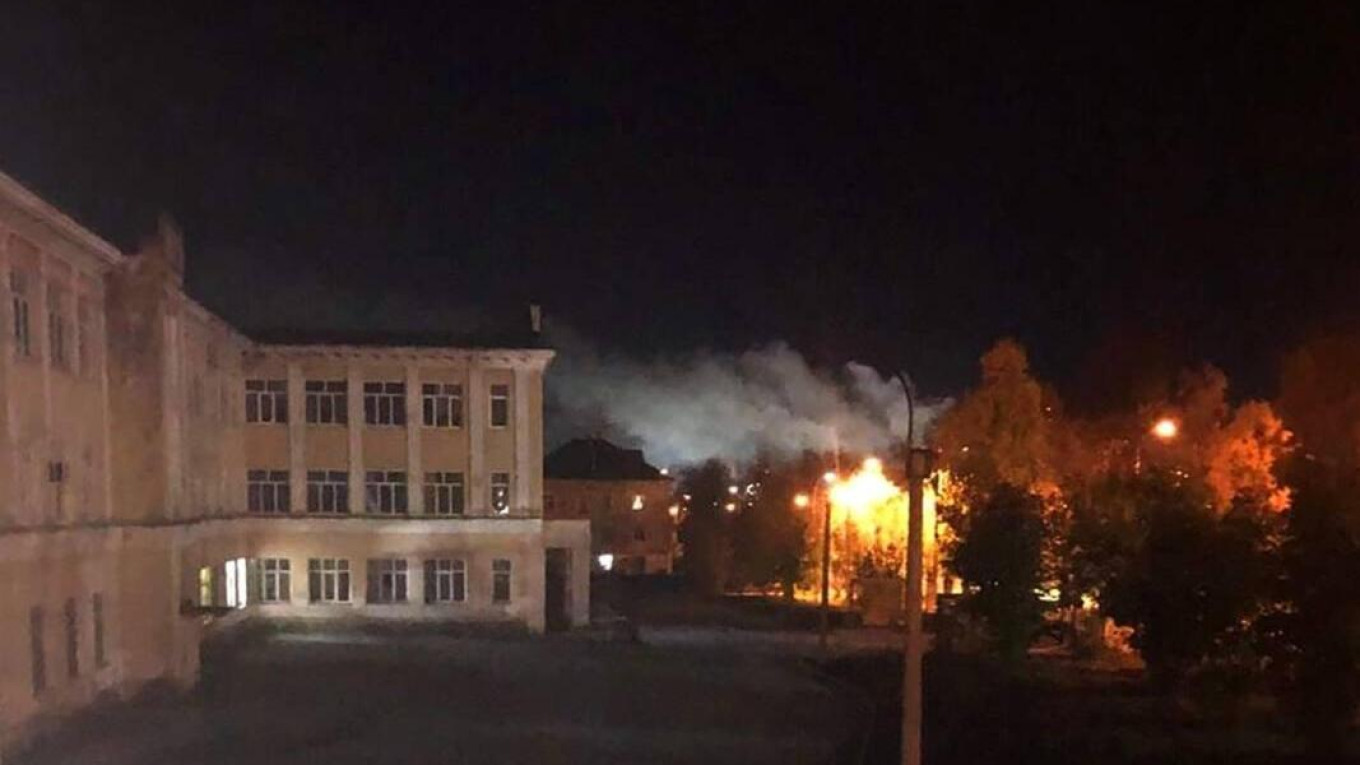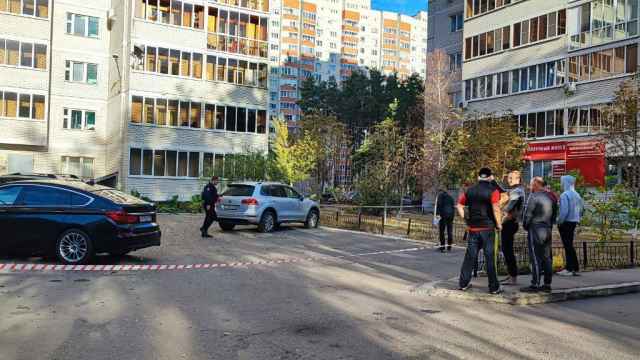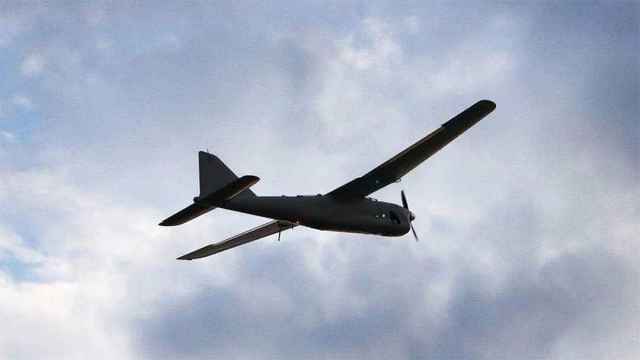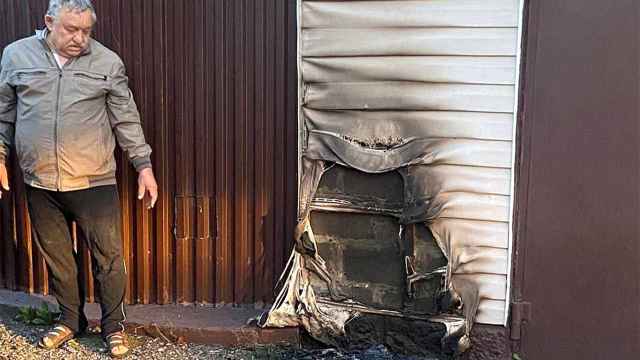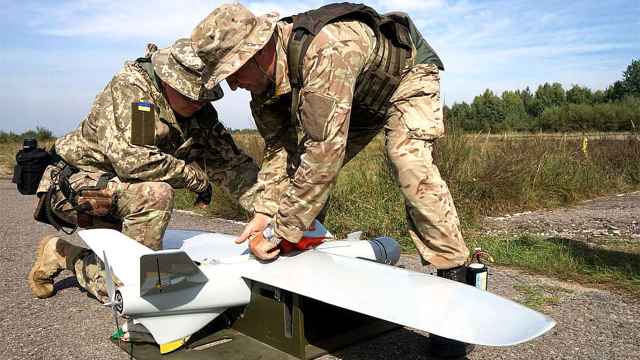Ukrainian drones attacked a major Russian oil refinery in the Orenburg region and one of its largest chemical producers in the Perm region overnight, officials in both regions said Friday.
The Orsknefteorgsintez oil refinery was the target of the Orenburg region strike, independent media outlet Astra reported.
Videos posted on social media showed at least one drone crashing inside the refinery grounds, followed by a column of black smoke rising above the plant.
Orenburg regional Governor Yevgeny Solntsev said there were no casualties and operations at the facility were not disrupted.
The Azot chemical plant in the Perm region briefly halted operations due to the drone attack but has since resumed, Perm Governor Dmitry Makhonin said.
Residents reported two loud explosions near the plant late Thursday evening, while video posted online appeared to show an eyewitness saying three drones were involved.
Both Orsknefteorgsintez and Azot are located roughly 1,500 kilometers away from the Ukrainian border.
Owned by tycoon Mikhail Gutseriyev’s Safmar Group, Orsknefteorgsintez is one of Russia’s leading refineries with an annual processing capacity of 6.6 million tons. The facility produces about 30 types of petroleum products, including gasoline, diesel, jet fuel, bitumen and fuel oil.
Azot is part of Uralchem, a holding controlled by billionaire Dmitry Mazepin.
The facility is Russia’s sole producer of higher aliphatic amines, sodium nitrate and crystalline sodium nitrite, and manufactures ammonium nitrate, liquid ammonia, urea, nitric acid and nitrite-nitrate salts. Ammonium nitrate is widely used as fertilizer and is also a component in explosives.
Ukraine has stepped up drone strikes on Russian refineries and chemical facilities in recent months.
According to industry data cited by the Silа agency, 38% of Russia’s primary oil refining capacity, or 338,000 tonnes per day, was offline as of Sept. 28. Capacity available for gasoline and diesel production fell 6% in August and a further 18% in September.
The Kommersant business daily reported that gasoline output in September dropped by 1 million tons, leaving a supply shortfall equivalent to about 20% of domestic consumption. Fuel shortages have been reported in more than 20 regions from Sakhalin to Nizhny Novgorod, with the Far East and Crimea the hardest hit.
The Russian government has banned gasoline exports and prepared to accept imports to stabilize the market.
A Message from The Moscow Times:
Dear readers,
We are facing unprecedented challenges. Russia's Prosecutor General's Office has designated The Moscow Times as an "undesirable" organization, criminalizing our work and putting our staff at risk of prosecution. This follows our earlier unjust labeling as a "foreign agent."
These actions are direct attempts to silence independent journalism in Russia. The authorities claim our work "discredits the decisions of the Russian leadership." We see things differently: we strive to provide accurate, unbiased reporting on Russia.
We, the journalists of The Moscow Times, refuse to be silenced. But to continue our work, we need your help.
Your support, no matter how small, makes a world of difference. If you can, please support us monthly starting from just $2. It's quick to set up, and every contribution makes a significant impact.
By supporting The Moscow Times, you're defending open, independent journalism in the face of repression. Thank you for standing with us.
Remind me later.


